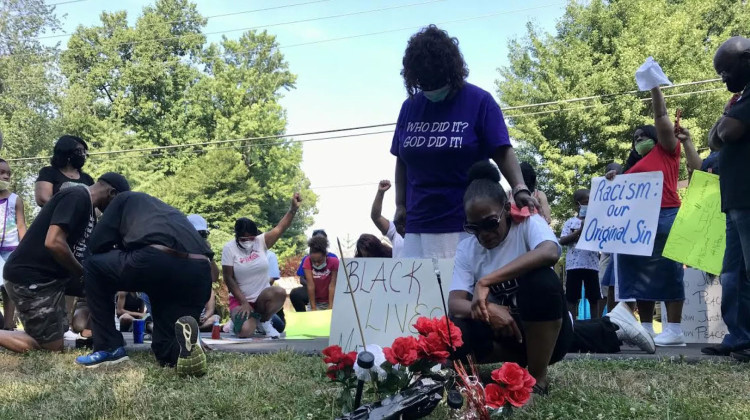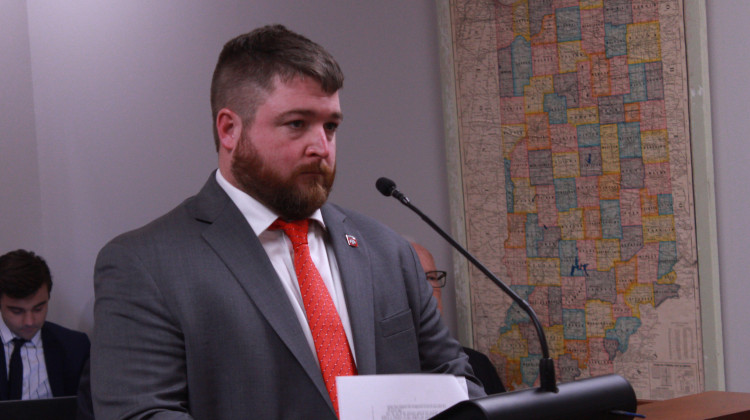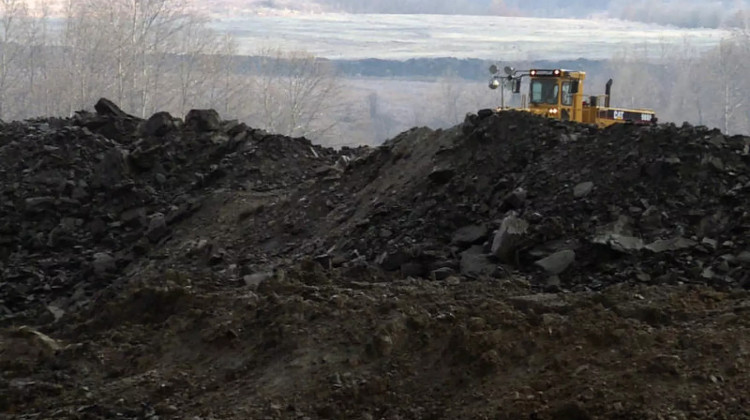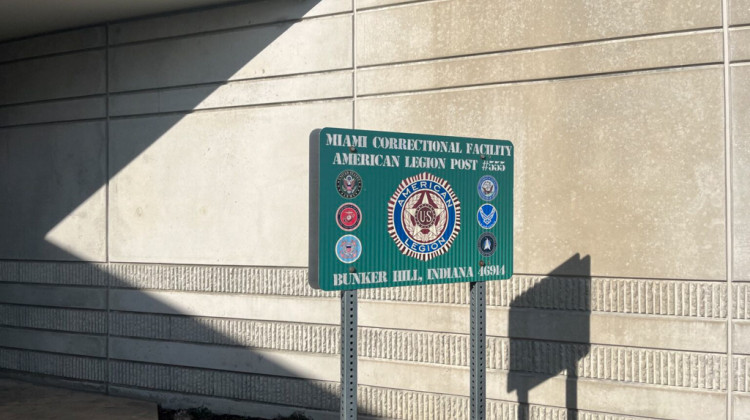
Tara Williams kneels over the site where her son, Malcolm Williams, was shot and killed by an Indiana State Police trooper at a protest in Jeffersonville, Indiana.
John Boyle / LPMThe family of 27-year-old Malcolm Williams filed the case in federal court in 2021, one year after he was shot and killed by ISP Trooper Clay Boley. The suit includes eight federal and state claims against Boley and other unnamed officers, including excessive force and wrongful death. The list includes a claim that any officers on scene — there was at least one other than Boley — failed to intervene.
Williams was the passenger in a car stopped by Boley in Jeffersonville in the early morning hours of April 29, 2020 for a broken tail light. The driver was Williams’ girlfriend, Antionette Webb, who was nine months pregnant and who began having contractions during the stop.
Police say Boley suspected Williams was giving a false name. When Webb began having contractions, he agreed to let Williams go to her side of the car to help. While outside the car, Boley patted him down and reported finding the magazine to a handgun.
He asked Williams to get back into the car, and police say he denied having a gun. Police say Williams then pulled a gun out of the car’s glove box and aimed at the officer. They say he fired three rounds as Boley caught and wedged his arm, while returning fire. The trooper shot Williams six times, including four shots to his back. He died before getting to the hospital.
Williams’ family disagrees with the police, according to the lawsuit filed by his sister Ashtyn Williams. Their attorneys argue in the lawsuit that Williams told Boley that Webb kept a handgun in the car and was trying to hand it to him — by “dangling the handgun in a way to make it clear that he could not shoot the weapon.”
“At the time he was shot, Malcolm was not acting violently, had done nothing to provoke or justify … Boley’s brutal and deadly assault, and posed no risk of substantial bodily harm to any person,” according to the lawsuit.
Following his death, community members rallied to protest the shooting, overlapping with racial justice protests after the deaths of George Floyd and Breonna Taylor. They asked for footage of the incident to be released.
But there was no video of the stop. ISP didn’t use body cameras then, and Boley’s car was not among the very few in the department equipped with a dash cam.
The ISP Versailles district investigated the case, turning the findings over to the Clark County prosecutor a few months after the shooting. The prosecutor found that under state law, Boley was justified in using deadly force after Williams shot at him, and was not charged in the case.
The civil trial was set to start Monday, but a notice of settlement was filed with the court late last week. Details about the settlement have not been provided. The parties have until Sept. 4 to file a motion to dismiss the case.
Coverage of Southern Indiana is funded, in part, by Samtec Inc. and the Hazel & Walter T. Bales Foundation.
9(MDAyMzk1MzA4MDE2MjY3OTY1MjM5ZDJjYQ000))
 DONATE
DONATE






 Support WFYI. We can't do it without you.
Support WFYI. We can't do it without you.